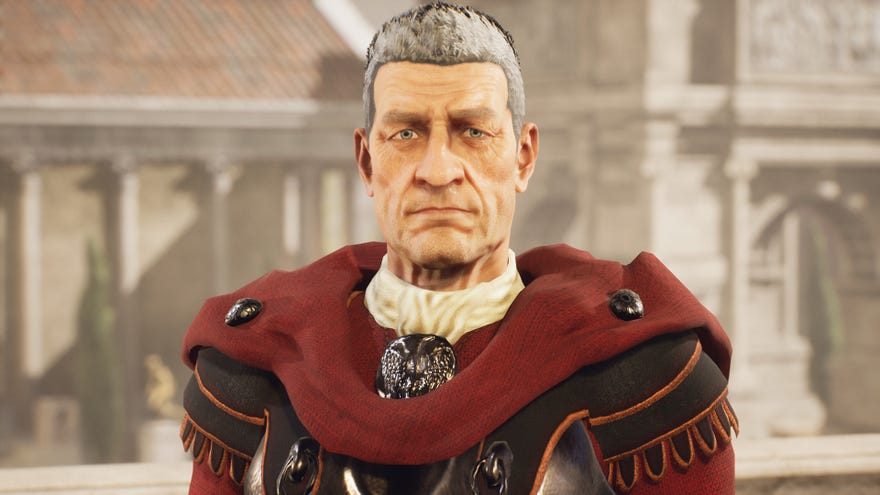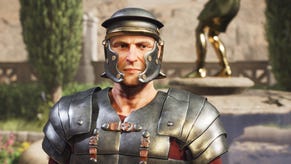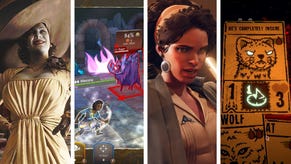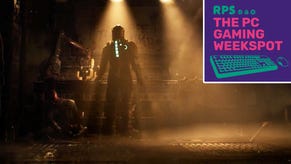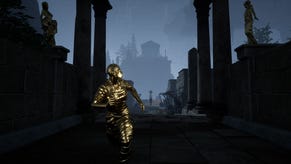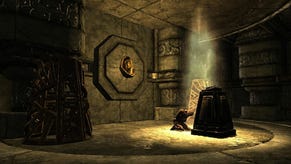The Forgotten City review: a lean mystery that builds Rome in a day
If you don't like how the die falls you can cast it as often as you like
Picture the scene: you wake up at the side of a river and a stranger, who is reluctant to tell you their name, is like, "Can you go into the ruined city and find my mate please?" Five minutes later and you find yourself stuck in a time loop in a small Ancient Roman settlement from 2000 years ago. It's not just you who's trapped, either. There are several people stuck in this underground city that you fell into, and you're all under the threat of turning into gold statues if even one of you does something wrong. This is the situation in The Forgotten City, a time loop mystery adventure that does not, unfortunately, feature a dialogue option for constantly swearing and weeping as a reaction to the situation. 0/10 for realism.
High scores for everything else though. I didn't play the immensely popular Skyrim mod that later inspired this standalone, which probably helps one to enjoy The Forgotten City more. But it does stand alone very well. Not a pudgy toddler hanging onto the Dragonborn's ankles, this; no, it is a sturdy Roman legionary, lean and muscular.
The team on The Forgotten City is very small, but because they've not overreached it means the game as a whole feels svelte rather than sparse. The title city is a bit of a stretch, since there are only 20-ish people there when you turn up, and three of them have gone missing. Your job, as explained by Sentius, the kindly old Magistrate of the place who created the time loop, is to figure out who it is who's going to break the so-called Golden Rule, to stop everyone's gilded death. Every time you fail, you have to sprint back to the portal while golden huntresses fire magic arrows at the NPCs, to be sent back to the start again. Freeing the city involves talking to everyone, finding out what their problems are and how to fix them, and gradually you becoming the master of the loop in full Groundhog Day style. There are actually four possible endings, but getting the best one requires the most careful collecting of information.
The relatively restrained cast and location size means this is achievable without having to follow quest markers all the time. Domitius the gladiator is usually doing push-ups in the courtyard in front of the villas, for example, so if you need to yell at him about something, you know where to look. Sentius and his daughter chill in his villa. The different shopkeepers are all in the forum. Bingo bango.
"The logical nature of this very supernatural mystery makes you feel like a big smarty pants."
The game does make time for a couple of branching side bits that you only visit once - a romp through a mansion and a similar romp through some underground tunnels that turn into an optional survival horror-ish creep-fest - but for the most part you know exactly who is where, when.
The logical nature of this very supernatural mystery, combined with the clarity of the location and lack of hand holding from the game, makes you feel like a big smarty pants. And you also always know what you want to do. With every go at the loop you have a solid project in front of you: I want to get the medicine from Desius the price-gouging shopkeeper, so I can save Julia from being poisoned, and if she lives I can save someone else, and so on. But do I try and get together enough money to buy it? Or is it easier to just steal it, reset the loop and start again?
Anything you have on you when you're hurled through the portal, you keep. So if you steal a key to someone's locked house on one loop, you can unlock the door and waltz in on any subsequent ones. The Forgotten City is also set up so that you can do these things in almost any order, which must have been pretty hard to do, and means two people playing could have quite a different experience of the story. You also get a lot of bandwidth for what counts as a sin. As long as you don't physically harm someone or steal their stuff, you're okay. Which does become its own topic of debate in the story...
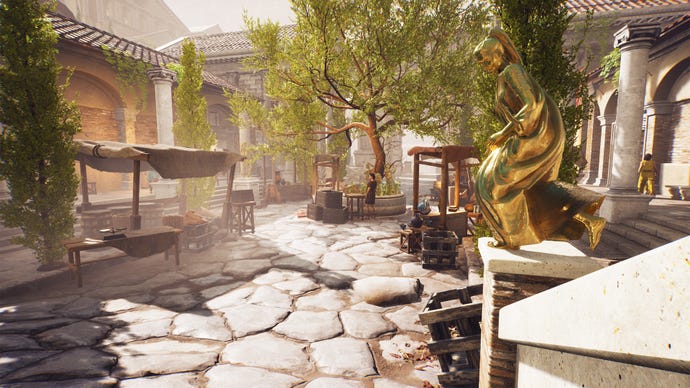
The story itself doesn't hold many surprises, but there are couple of twists to throw you that I've not even approached spoiling here. Though it touches a bit on capital "I" issues like debt slavery, colonialism and internalised homophobia, the touch is really a light brush past. But as an entire experience, The Forgotten City is very tight, and the cast and characters are a lot of fun. The aforementioned Domitius is a laughable beef boy, and I really enjoyed Georgius, the extremely jovial Greek tailor, and Galarius, a romantic farmer and your best pal in the world. There are some things I could pick up on, in a dickhead kind of way. An assassin arrives at the start of the loop, and given what you learn by the end his appearance would have to be almost the largest coincidence in human history. But I'm not employed by Cinema Sins, so I'll leave it to narrative expediency.
There are annoyances, though, and unfortunately the largest one is to do with talking to characters. In what feels like a Skyrim hangover, when you go up to someone to interact, it then cuts to a view of their upper body, with a pause while they turn to face you or settle into their talking pose. It's only a couple of seconds, but it's a couple of seconds every. Single. Time. You also can't talk to someone if their code is telling them they're about to have a conversation with someone else, and by the end it means about half the cast is unavailable for the first five minutes of the loop. Similarly, the limits of the main hub area are sharply defined by a long pause to load the next bit that happens right as you hit the divide, even if that happens to be in the middle of a hallway or a tunnel. I kept thinking the game had crashed.
But at the end of your six to eight hours, you'll have had a fun, satisfying and historically informative time. You'll also start to mutter, "The many shall suffer for the sins of the one!" to yourself every time you drop a slice of buttery toast on the floor in real-life. While The Forgotten City is a bit rough around the edges, it's a fantastic proof of concept, and its small team. Watch this space for whatever Modern Storyteller do next.
